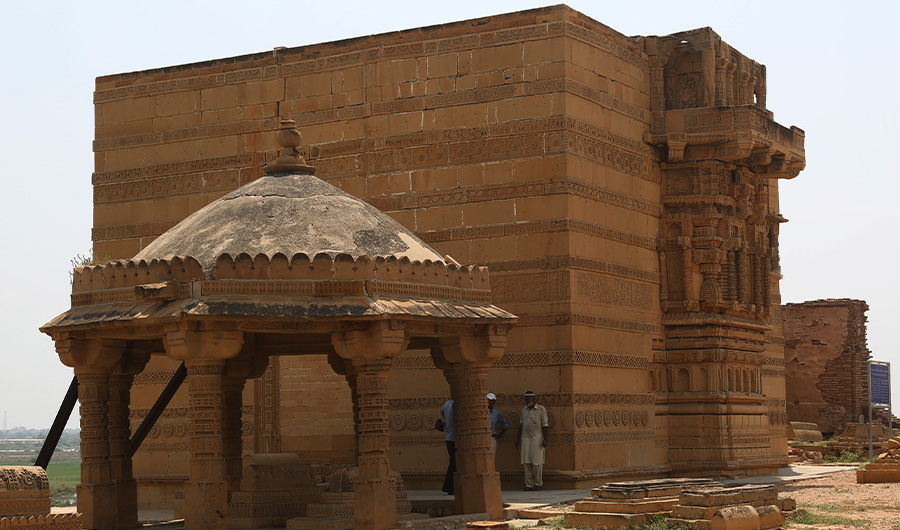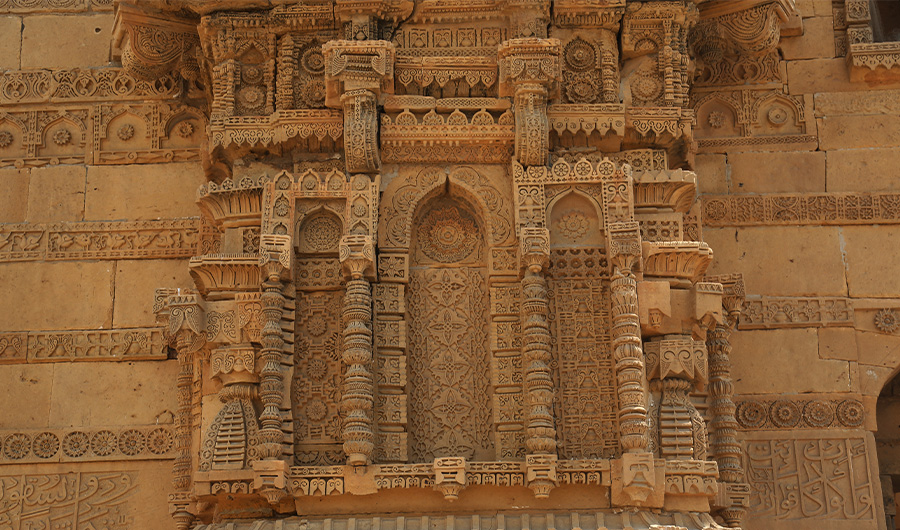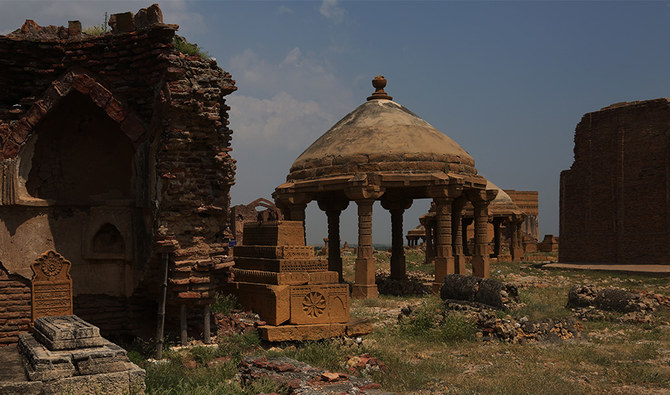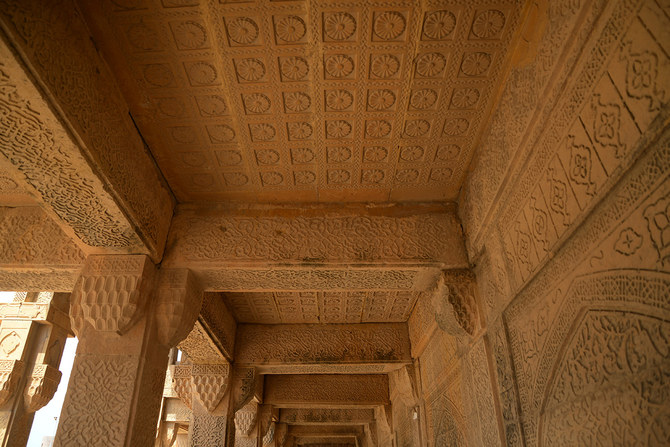THATTA, Sindh: Nearly a hundred kilometers away from Pakistan’s commercial hub Karachi, this town was once the capital of Sindh and home to some of the most powerful dynasties of the time.
Given its historic significance, Thatta is still surrounded by monuments, though its biggest attraction is Makli Necropolis where about half a million people are said to be resting in peace.

A view of the old Jamia Masjid, built in 1391 AD by Jam Tamachi, a famous ruler of Sindh from Samma dynasty. Photograph taken on Sept 25, 2019 (AN Photo by SA Babar)
Among the residents of the graveyard are many members of royal families whose tombs still stand out as masterworks of creativity, art and calligraphy.
Covering more than 10 square kilometers, the cemetery also contains 21 active Sufi shrines, thus attracting hundreds of devotees from across the province and other parts of the country.
In 1981, Makli was declared a UNESCO World Heritage Site. An outstanding testament to the Sindhi civilization, the place accommodates members of Samma (1340-1520 AD), Arghun (1520-1555 AD), Tarkhan (1555-1592 AD) and Mughals (1592-1739 AD) dynasties. While the first three were native dynasties, the Mughals were invaders who occupied Sindh.

Grave of Mai Makli at the necropolis. Photograph taken on Sept 25, 2019 (AN Photo by SA Babar)
“These monuments are a stark reminder of the dedicated craftsmanship and construction prowess of the Mughals. Some monuments are done in yellow Jungshahi buff stone, while some in bricks, both building material native to the region,” Sarfraz Nawaz Jatoi, an official of Sindh’s culture department told Arab News on Thursday, adding that the Qur’anic inscriptions, geometric and floral ornamentation, meticulously carved in stones, were also unique.

The tomb of Jam Nizamuddin alias Jam Nando, one of the most important rulers of Samma, who ruled over Sindh from 1460 to 1508. “His era is considered as a prosperous and peaceful period for Sindh,” Sarfraz Nawaz Jatoi, official of the province’s culture department, told Arab News on Sept 25, 2019. (AN Photo by SA Babar)
According to one account, the site was named Makli – or little Makkah – by a Sufi saint, Sheikh Hamad Jamali, after he heard the story of a pilgrim who had called it Makkah while returning from his sacred Hajj journey.
An old caretaker, Muhammad Hasan, however, shared a different story with Arab News, which is among several myths surrounding the name of the place.

The tomb of Jam Nizamuddin alias Jam Nando, one of the most important rulers of Samma, who ruled over Sindh from 1460 to 1508. “His era is considered as a prosperous and peaceful period for Sindh,” Sarfraz Nawaz Jatoi, official of the province’s culture department, told Arab News on Sept 25, 2019. (AN Photo by SA Babar)
“Mai Makli was a pious woman who grew goats and sold their milk. It is said she would take lassi [a curd-based drink] to Makkah at night where she was seen by several pilgrims from Sindh. The place and this graveyard is named after her,” Hassan said while pointing toward her grave between a mosque and seminary.
“There are several myths about the name, but everyone agrees that it is a great historical site. The province’s culture department is doing its best to make it more accessible to tourists around the world,” Jatoi said.
























